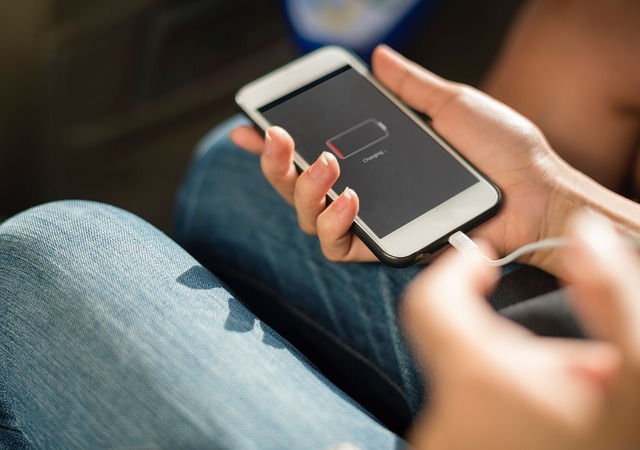What Are The 10 Ways to Save Energy in the Home?
Unless you’ve been living under a rock, you’ll know that our utility bills are getting bigger and will continue to do so for the rest of the year. You might think that you’re doing all you can to cut back, but there are lots of tips and tricks you can employ around the home to help lower your yearly energy expenses. For example, think about how many appliances we leave on standby - just the simple act of switching them off properly could save you as much as £147 a year. So here’s we’ve put together some frequently asked questions about ways to save energy in the home, so you can start making those changes.
Home Appliances
Why Save Energy at Home? - As well as saving you money on ever-increasing bills, using less energy is also good for the environment. Lowering your gas and electricity usage reduces CO2 emissions, conserves natural resources and helps make the world a slightly better place. Pair this with saving you money and you’ve got a pretty irresistible combination right there.
Which Appliances Should Be Unplugged? - The short answer to this is basically anything with a small LED or digital display, that isn’t completely necessary - these are also known as ‘energy vampires’ or appliances that use ‘phantom power’. For example, do you leave your electric oven switched on permanently because of the digital clock display? And if so, do you really need that digital clock display? The same goes for small kitchen appliances like toasters that have a light - if you’re not using it, just switch it off and at the wall and unplug if possible. Another culprit is the TV, and any other entertainment system with LEDs that keep running when the appliance isn’t in use. Did you know that a household with 3 television sets permanently left on standby adds an estimated £48.72 to a yearly electricity bill? Games consoles and laptops are yet more energy vampires that can add £16.24 and £4.87 respectively to your yearly bills when left on standby or plugged in.
Does a Phone Charger Use Electricity When Plugged In? - It certainly does. We all do it, but leaving your charger sitting there in the wall means it will be adding to your electricity bill, even if it’s not actually charging anything. So once your phone or tablet is fully-charged, flick the switch and pull out the plug.

What Are Energy Efficient Products? - There are two broad categories of energy efficient products in the home - appliances and lightbulbs. If you are not looking to get any new appliances right now, lightbulbs is still an area you can look to improve, swapping out any older ones for energy-saving LED bulbs. However, if you do need to upgrade a larger appliance in your home, then looking at the energy rating is a good starting point. Kitchen appliances like refrigerators, dishwashers, washing machines and dryers will all come with a rating on a scale of A+++ to G. The energy efficiency is done by size, so make sure you compare like with like - for example, a larger washing machine might have the same energy rating as a smaller one, but will use more electricity. And when you browse online with our Currys voucher codes, you can easily find energy ratings of appliances online as these are listed with all the other product specifications.
Other examples of smaller energy efficient products include tap aerators (that can aerate the water flow from older taps so you use less) and water saving shower heads (that work on the same principle). And talking of which…
Water and Smart Devices
How Could We Use Less Water? - Along with water saving shower heads and tap aerators, there are a number of other things you can do around the home that won’t cost you a penny. Firstly, think about how you use your dishwasher by making sure you’re only turning it on once it’s full. And if you’re using it frequently because lots of larger items are taking up space in it, would it save water to wash them up instead? And can you cut down the length of your showers? Or maybe look to the health benefits of switching to a short, sharp cold shower a few days a week instead.
If you have a thriving garden that needs watering often, there are a few ways you can be a bit smarter with your water consumption here too. Making use of the weather forecast is a good place to start. Because if there’s rain tomorrow, then don’t waste water today, especially if it’s not particularly hot. Installing a water butt and putting trays under your pots to collect excess water are efficient ways of making it go further so you don’t have to turn on that garden tap quite so often.

How Do Smart Devices Work? - The most common energy-saving smart devices are smart thermostats and smart meters. These types of thermostats give you greater control over your heating, letting you set temperatures from an app on your phone and reduce them without having to rely on your thermostat’s control function. Smart meters let you accurately monitor your daily usage, as well as relaying meter readings back to your energy provider so you’re never paying more than you should.
How Do I Set My Thermostat to Save Energy? - Did you know that by reducing the temperature on your thermostat by 7 degrees for 8 hours a day, this might cut your heating bill by 10%? If you have instructions for your thermostat or it's simple to use, then great. If not, then don’t worry - search youtube for instructional videos for the brand and model of thermostat you have, or look online for guides. And if you have a very old thermostat, then perhaps see this as an opportunity to upgrade to a more energy efficient system.
Kitchen Energy Savings
What Kitchen Appliances Use the Most Electricity? - Unsurprisingly, your fridge will be the appliance that uses the most energy. And even though we have to have them on all the time, there is one thing you can do to minimise this usage - defrost regularly, because ice build up can damage its efficiency and make it work harder. Tumble dryers are also bigger energy guzzlers, so think about how you are using it. Dry your washing on the line when you can, and only put full loads in the dryer to maximise its efficiency. If you are looking to upgrade either of these appliances, then please do choose models that are more energy efficient. You can use AO.com voucher codes to search for the best deals on models with better energy ratings so you can start saving on your bills.
Is it Cheaper to Run a Microwave or an Oven? - A microwave is generally much less expensive to run than an oven, as cooking with a microwave takes much less time. However, whether this suits you will depend on your circumstances. For example, using an oven when cooking for a large family might be more efficient and convenient than using a microwave. And another item to consider as an alternative to oven cooking is a slow cooker, as when preparing a stew or casserole this can use a lot less electricity.
How Can I Use Less Electricity When Cooking? - Whether you have a gas or electric hob, you should always cover your pans when cooking things like pasta and rice. Not only will it bring water to the boil quicker, but you can also then cook at a lower setting, saving power. And if you have an electric hob, remember to turn it off a few minutes before you need your food to be ready - the residual heat coming off it will still help cook your food in the pan.
Saving energy around the home doesn’t always have to mean investing in more efficient appliances or a new central heating system. There are lots of small changes you can make and habits you can get into that won’t cost you anything extra, but could end up saving you money on your annual bills. And if you’re looking for more money saving tips, then you can check out this post for more ideas on how to make your cash go further.
By Anna Scott, 24th June 2022





